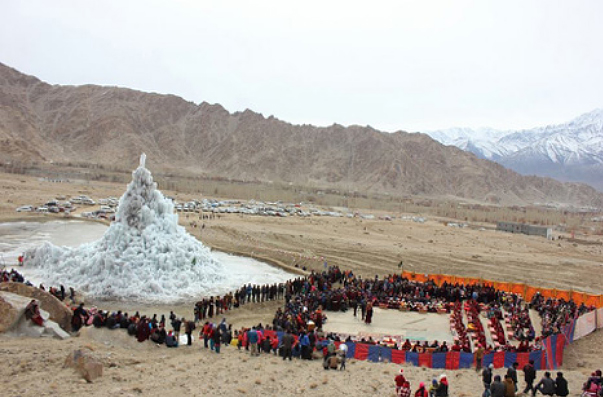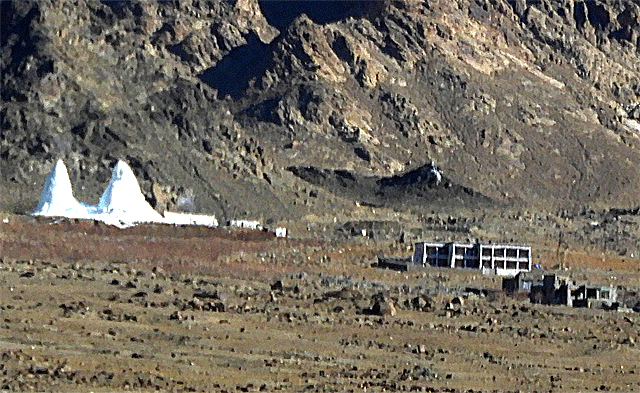Sonam Wangchuk has come up with an approach for promoting the effective conservation of scarce water resources in Ladakh. In 2014, the well-known Ladakhi engineer and his students developed a way for villages to store water from the snows and rains of winter until the planting season of spring when it is really needed. They brought the water down to a village in an underground pipe and let it freeze into a conical shape as it came out. The concept of building “ice stupas”—so-called because the artificial glaciers look like Buddhist monuments—was born. The melt water from the ice cone would be used during the spring for the village crops.

According to a news story last week, Wangchuk is holding a competition among the Ladakhi villages to see which can build the highest ice stupa this winter. The 12 villages that have entered the competition, located in both the Leh and Kargil districts, are competing for cash awards of 500,000 rupees (US $7,000) first prize, 300,000 rupees for second prize and 200,000 for third prize. The competition began in mid-December and will conclude at the end of March.
Wangchuk told the reporter that each of the villages entered in the competition was building an ice stupa with a theme. The one in Gya Meru has been built with a natural ice café inside it while the one in Shara features ice climbing. The hope of the villagers is to attract tourists and thereby earn some extra money.

Wangchuk’s goal in holding the competition is to promote among the villagers the importance of conserving water during the winter for use during the growing season. Local farmers are finding that water is an increasingly scarce resource. Wangchuk’s team started the participants in the villages that entered the competition by providing free pipes, additional necessary materials, and training.
Throughout the winter his team has continued monitoring and mentoring the participants in ice stupa construction. They have found that the unusually cold winter has caused troubles for the contestants as it has led to the water pipes freezing.